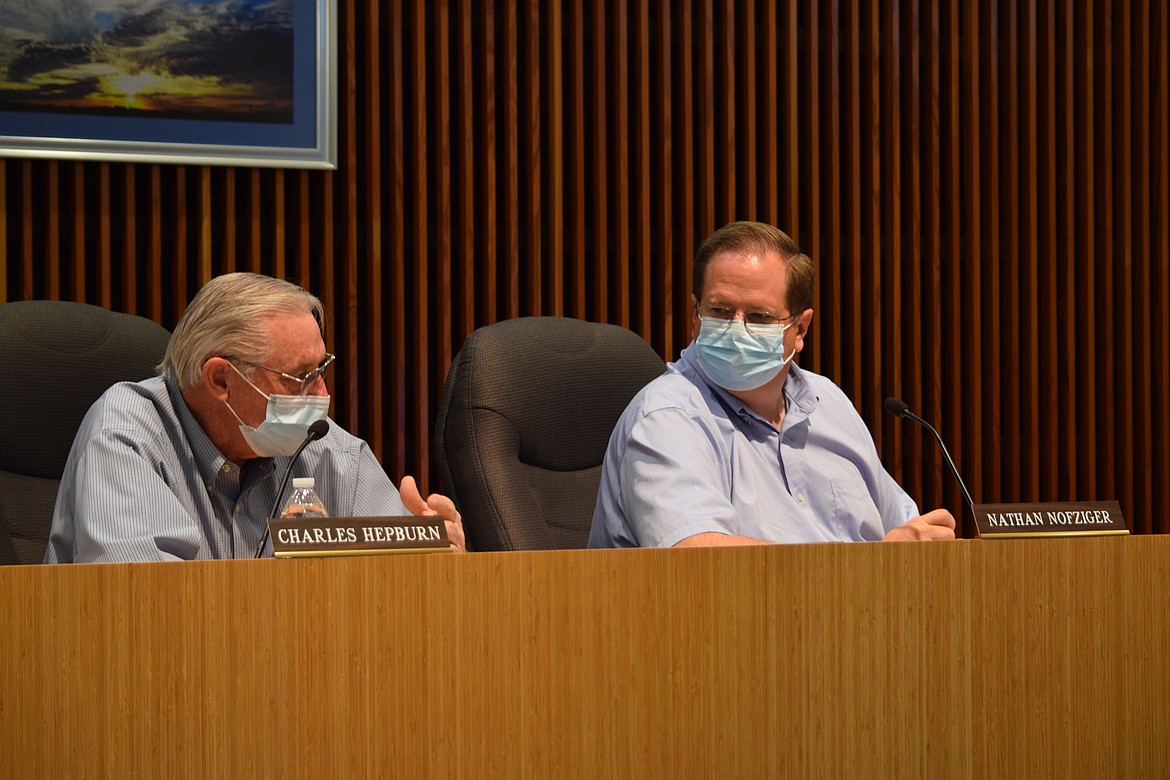Residents, developers voice concerns over proposed plan
MOSES LAKE — A group of major property owners and developers believe the city of Moses Lake is not adequately preparing for future business development and housing needs as the city revises its Comprehensive Plan.
Mark Fancher, a local real estate agent and candidate for the Moses Lake City Council, told members of the planning commission during a public hearing on Thursday he has been involved in three site visits in the last month alone to the old Xyleco plant on Road N Northeast, across from REC Silicon, by three major companies with three more planned.
“All high tech firms that will be moving in people,” Fancher said. “We do not have an inventory of surplus homes. We need to have a good supply to meet the demand so we can raise the average family wage and people can afford to own homes.”
Fancher said he was concerned the draft Comprehensive Plan, which is nearly 470 pages long, removes land from the Moses Lake Urban Growth Area that could best be used to build new housing, and the plan’s aim of adding to the city’s housing stock by filling in unused land inside the city limits and increasing the density of downtown simply will not allow the city to build enough new, single-family homes quickly enough should a large company decide to locate here.
“If we can’t build affordable housing, that’s another box we can’t check with industry,” he said.
The plan, required under the state’s 1990 Growth Management Act, is intended as a map to guide city development decisions in the next 20 years. The plan examines land use, housing, utilities, transportation, capital and essential public facilities needed as the region grows, and covers not just the city of Moses Lake, but the associated Urban Growth Area (UGA), which is intended to contain nearly all of the city’s industrial and residential development.
The draft plan foresees the city’s population growing to 35,626 by 2038 from just more than 24,000 now, well in line with historical trends, according to City Manager Allison Williams, and looks to redraw the UGA by adding some industrial acres northwest of the Grant County International Airport and enclosing a “box” of county land between state Route 17 and Road N Northeast, and between Wheeler Road and Interstate 90, which is neither within the city limits nor the UGA.
However, among proposed changes to the UGA is removal of residential land north and west of The Links at Moses Point, citing a challenge to provide city services to the area, such as water and sewer.
Kim Foster, an attorney representing ASPI (Aero-Space Port International) Group, one of the largest industrial landowners and developers in Moses Lake, said the population growth projections are “woefully inadequate” and do not include The Church of Jesus Christ of Latter-day Saints’ new temple — which may draw as many as 5,000 new residents to the area — as well as a major new industrial development, which all by itself could result in 7,500 new jobs.
“We have a massive international airport and the lowest priced power, and I don’t see any accounting for any of that,” Foster said.
Houston Aho, who oversees acquisition and development for Vancouver-based Aho Construction, said he is also disappointed the draft plan overlooks moderate-income housing — homes for those who make 120% or less of the mean income (around $51,000 for a household in 2019) — and does not include Aho’s Dune Lake project in the proposed UGA changes.
“It would be a great project to have in the city to meet future demand,” said Aho, speaking to the planning commission by phone.
Aho also said focusing new home construction in areas inside the city — infill — rather than on large new subdivision developments on the edge, will take longer, is riskier and won’t meet the need for new housing.
Williams defended the draft, saying growth is cyclical, jobs were both lost and gained in the 2015-19 period, and focusing new housing development on infill was a way to put new housing construction, especially of affordable, multi-family homes, back in balance.
“We have adequate city limits to support growth,” she said.
Moses Lake Planning Commissioner Charles Hepburn wondered just how many homes could be built in Moses Lake quickly if a major business decided to locate here.
“We need 253 homes a year to accommodate growth,” Williams responded. “That’s on an ongoing basis. In a surge, the market would need to respond, but there is enough land in the UGA.”
Moses Lake Planning Commissioner Eric Skaug said he was concerned about any attempt to remove land from the UGA because redeveloping downtown and filling in unbuilt lots within the city simply will not supply all the housing the city needs.
“We need to look harder at expanding the UGA and not shrinking it,” he said.
Planning commissioners voted to continue the public hearing and solicit more public input on the revised Comprehensive Plan at a special meeting at 6 p.m. Thursday in city council chambers, 401 S. Balsam St. People can also attend remotely by visiting https://cityofml.zoom.us/j/84264035668 or by calling 1-253-215-8782 and using identification number 842 6403 5668.
Those who want to give written comments must give those to Planning Commission Secretary Michelene Torrey no later than 3 p.m. Thursday. And, those who want to comment during the meeting must fill out the form found here before 3 p.m. Thursday: https://lfweb.cityofml.com/Forms/Planning-Commission-Speaker-Request.
Charles H. Featherstone can be reached at [email protected].

